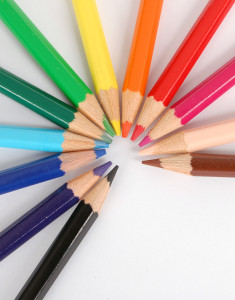“If, in the business of communication, image is king, the essence of this image, the logo, is the jewel in its crown”. – Paul Rand
As the saying goes, you never get a second chance to make a first impression. For brands, that first impression often comes when the audience initially sees its logo. Without a strong visual brand representation, any following movement toward branding success can be doomed to be an uphill climb. As Paul Rand points out, your brand’s image is a massive aspect of its brand, and your logo is the centerpiece.
So to help nail down a successful first impression, here are 7 tips to ensuring that your logo lives up to its place as the crown jewel of your brand’s image.
- Know who your logo will speak to and design to what you want it to say to them. Your design choices for a new soft drink logo should not also be your choices when creating a logo for an accounting firm. Your logo is often the first interaction an audience has with your brand, so their decisions about your brand will be largely based on the logo – make sure it speaks correctly of your overall brand.

- Connect the colors of your logo to what fits what emotions your brand represents. Simply put, color drives emotional responses. Certain colors are connected with specific emotions, and much like your overall design, color choices should fit with what your brand exemplifies. This is also another reason to begin the logo design process by identifying specific brand characteristics that will drive the ensuing branding decisions.
- Don’t let it become a one-trick pony. Keep in mind that logo versatility is vital. In today’s digitally-driven world, logos are called on to live on mediums that can vary from an embroidered shirt to a mobile app, and a great logo does so with equal success. Black and white, color, big, small, on a screen or in real life – these are just some of the boxes that good logos must check as areas in which they are compliant.
- Trends come and go. A good logo can last (close to) forever. There are some new design trends that provide a welcome update to traditional ways of thinking, and then there are some that are destined to be “blink and they’re gone” fads. Those logos that fall for the “next big thing” that turns out to be just the opposite are then left with an outdated-looking logo that is begging for a redesign, which can be costly and time consuming. Solid, quality, foundational design principles never go out of style, and those logos that can successfully walk the line between new and classic are destined to become timeless on their own.
- Confusion is never a good logo result – clarity in what your logo represents and how it ties back with your brand strategy can ensure long-term success. If a customer looks at your logo and doesn’t come away with at least a minimal understand of what the brand’s purpose is, then the logo is not doing its job. This is not to say that the logo has to scream out your brand’s offerings (no need to necessarily put food in a grocery store logo), but the link between the logo and the brand messaging shouldn’t look like a maze.
- It’s not what you say, it’s how you say it – your font choices speak almost as loud as the words themselves. Your font is a crucial piece of the overall logo design and can communicate your message just as much as any other visual element – take note of the variety of choices available and find one that can comfortably fit within your overall visual brand.
- Sometimes, simple is successful. In a recent study, it was discovered that 95% of the companies researched used only one or two colors total in their logos. Simplicity in color choices not only reinforces the aforementioned emotional connection with a color, but it also has become the trend as logos are being used in an increasing number of mediums and need to be easily reproduced.
Addison Whitney is a global branding firm with a passion for building strong brands.
To learn more about Addison Whitney, visit our website at AddisonWhitney.com, or contact us here.
